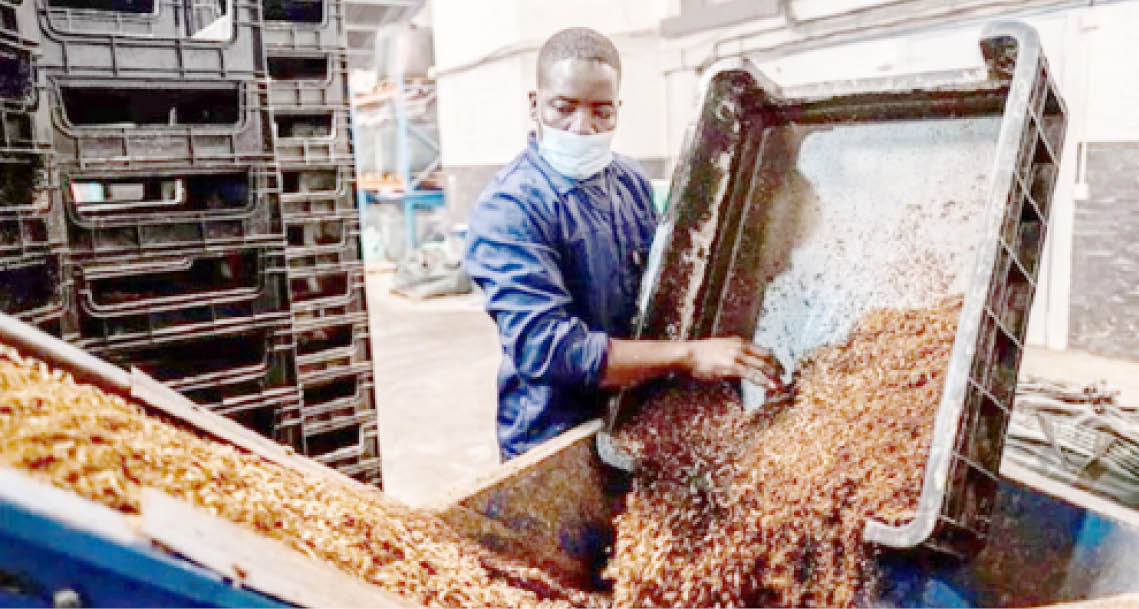AGRO SOLUTIONS: Cape Town startup provides black soldier flies as protein for livestock, export
A Cape Town-based startup is providing black soldier flies as a source of protein for use in pet food and animal feed. Dean Smorenburg always had an interest in sustainability, especially when it comes to reducing food waste. Having a background in managing consulting, Smorenburg recalled having come across the idea of farming with black […]

Black soldier flies are being used as a source of protein in pet food products
A Cape Town-based startup is providing black soldier flies as a source of protein for use in pet food and animal feed.
Dean Smorenburg always had an interest in sustainability, especially when it comes to reducing food waste. Having a background in managing consulting, Smorenburg recalled having come across the idea of farming with black soldier flies.
Black soldier flies have proven to be useful in helping to deal with food waste, that ultimately releases methane – a greenhouse gas that causes climate change. Black soldier flies can feed on food waste and break it down into a byproduct which is rich in protein and fats and can be used in animal feed and pet food markets, explains Smorenburg.
They are not pests, nor do they carry diseases like house flies.
- How family feud, others delay burial of former Senate President Wayas
- Lack of access to information bane of research – Don
Back in 2016, Smorenburg started farming with black soldier flies in his bathroom in Johannesburg.
“That is where it all started,” he says. Smorenburg says that as he travelled across the world through his work, he was also exposed to different technologies and business models which helped him set up his business, Maltento, in 2018.
The business has a facility in Epping (about 5 000 square meters) which employs about 60 people who farm with the black soldier flies in controlled environments, says Smorenburg.
“We have a dietician who balances the diet of the insects,” he explains.

It takes about seven days to harvest the insects. There are two types of products that the business offers. One is a dehydrated insect – this is a dried-down black soldier fly larvae or “grubbies” that can be sold as feed for chickens or wild birds, according to Smorenburg. The business has been exporting these to the US for three years. This is because there are many households that keep chickens as pets.
“It’s like a pet snack, like a biscuit for your chicken,” says Smorenburg. “A lot of people feed it to wild birds as well.”
The business last year started exporting to the EU.
The second product is basically the dried-out insect that is ground into a powder that can be used as a protein or oil source in pet food. Maltento has recently partnered with Montego – a pet food producer founded in Graaff-Reinet, in the Eastern Cape – providing its black soldier fly protein product for dog food.
The protein is hypoallergenic – unlikely to cause an allergic reaction in animals.
It is also helpful for the animal’s gut health, says Smorenburg.
Smorenburg said that a life cycle analysis is still to be done to measure the environmental impacts of this process. But largely, the business helps to divert significant amounts of organic waste from “less efficient destinies” like landfills where they would release emissions.
“So, we can break down significant volumes of byproducts every day in this facility, instead of it finding a worse home,” he says.
The plant is also efficient in other ways. For one, the black soldier flies are farmed in containers that are stacked on top of each other – which means the yield per square meter is 14 times higher. “Every week we get a new harvest… We get 52 harvests in a year, or 14 times the amount of land that we sit on,” says Smorenburg.
The process also uses little water because most of it is absorbed from the food waste, he adds.
There is room to improve energy efficiency. Maltento currently relies on fossil fuel-based electricity. But Maltento is looking to install solar on rooftops and to recycle heat and cooling into areas where it is needed.
Smorenburg is hopeful to establish other facilities elsewhere in the country.
“We want to find a balance between mechanisation and people. As a South African business, we have an obligation to get jobs for our people rather than just automate everything.”
The business employs people in surrounding communities.
SOURCE: NEWS24
